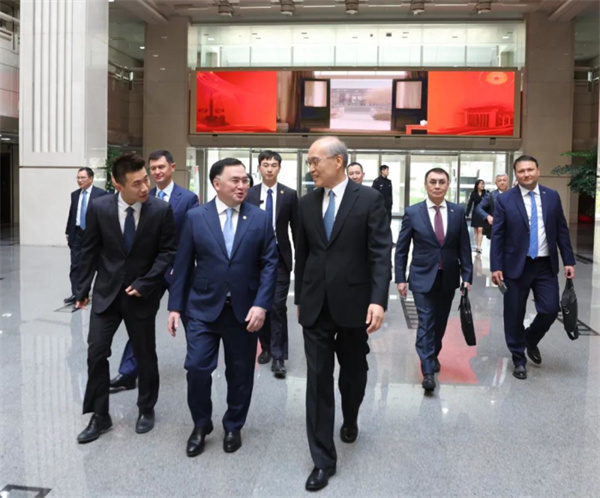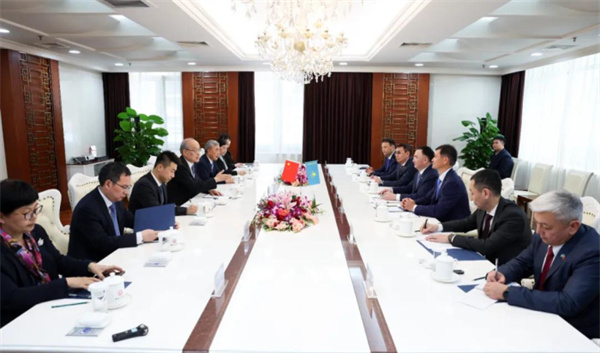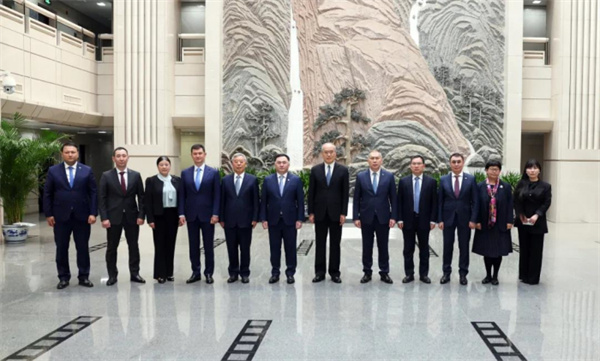Zhang Jun meets with Kazakh counterpart
On April 16, China's Chief Justice and President of the Supreme People's Court (SPC) Zhang Jun met in Beijing with a delegation headed by Chairman of the Supreme Court of the Republic of Kazakhstan Aslambek Mergaliyev.



China's Chief Justice and President of the Supreme People's Court Zhang Jun meets in Beijing on April 16 with a delegation headed by Chairman of the Supreme Court of the Republic of Kazakhstan Aslambek Mergaliyev. [Photo/court.gov.cn]
Zhang welcomed the delegation's visit, saying that China and Kazakhstan are good neighbors who watch out for each other, good friends with mutual trust and good partners with mutual benefits. The two peoples have a history of friendly exchanges spanning thousands of years, jointly composing beautiful chapters of mutual learning and exchanges between civilization along the ancient Silk Road. Over recent years, the China-Kazakhstan relations have achieved leap-frog development under the strategic guidance of the two heads of state, he said, adding that Chinese courts are ready to work with their Kazakh counterparts to continuously enrich the China-Kazakhstan comprehensive cooperation with rule-of-law strength and make new contributions to the development of the new "golden 30 years" of the bilateral relations, the China-Kazakhstan community with a shared future and the steady and sustainable development of China-Central Asia relations.
Zhang gave a brief introduction on China's court work, focusing on sharing experiences, especially regarding topics of interest to the Kazakh side such as the information-based development of courts. He said that Chinese courts have striven to advance modernization of adjudication work from the four perspectives of adjudication concepts, mechanisms, systems and management, in a bid to support the Chinese path to modernization. He raised hope for mutual learning between the top courts of the two countries and that they continuously improve information-based development in judicial work in order to make greater contributions to the advancement of judicial undertakings in both countries and the progress of rule-of-law civilization.
Mergaliyev thanked Zhang for the meeting and spoke highly of the bilateral cooperation in judicial work. He expressed willingness to further strengthen communication with Chinese courts, deepen pragmatic cooperation and jointly enhance judicial capacity in a bid to provide a sound judicial environment for the economic and social development in both countries and the region.
The delegation also visited the SPC's key smart court laboratory.







